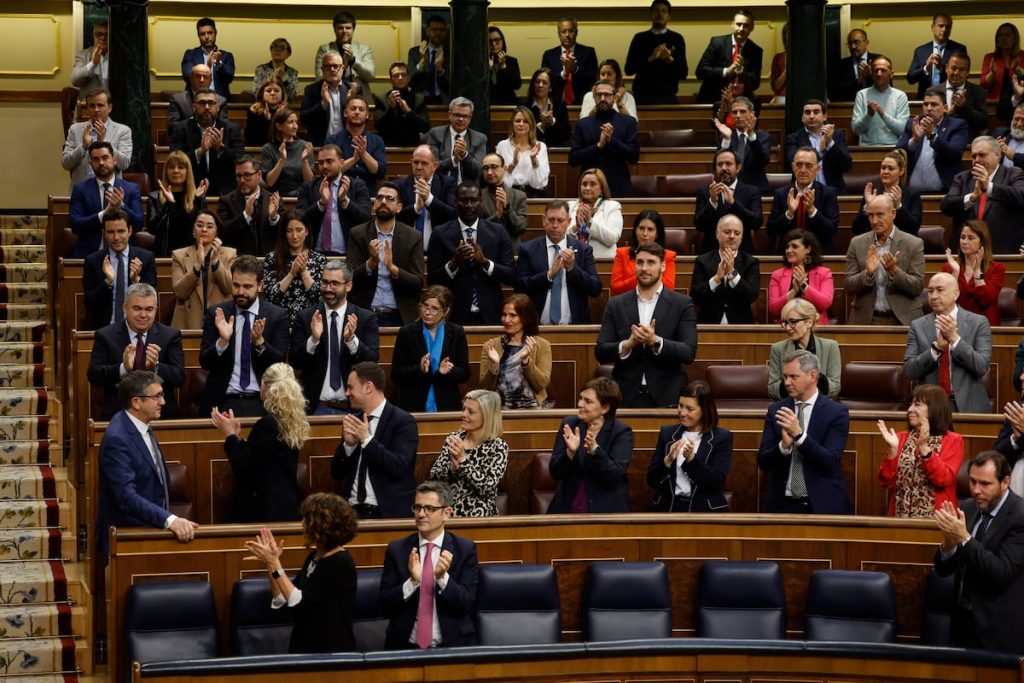The article from El País discusses the final approval of the amnesty law in Congress, which is scheduled for Thursday. The government needs an absolute majority to overturn the Senate’s veto, which was imposed by the PP. The leader of the PP, Alberto Núñez Feijóo, will argue against the amnesty law in the lower house. The law would pardon crimes committed between November 1, 2011, and November 13, 2023, including acts related to the independence movement in Catalonia. Supporters of the law claim it will benefit nearly 400 people and are aiming to close all legal cases related to the Catalan independence process in order to promote normalization in the region. The law will be published in the Official State Gazette and its enforcement will be up to the judiciary.
Subscribe to El País for free updates on the latest political news, as what happens closest to you often affects you the most. The article outlines the procedure that will take place during the parliamentary debate on the amnesty law. The leader of the PP will present the opposing view, while other groups will have the opportunity to speak on the matter before the final vote. The law aims to pardon individuals involved in the Catalan independence movement, including those currently facing legal consequences for their actions. Supporters argue that this will help promote social and political normalization in the region.
The proposed amnesty law has sparked controversy as it would pardon individuals involved in illegal activities related to the Catalan independence process. The law would cover crimes committed between 2011 and 2023, including the two illegal independence referendums in Catalonia. Supporters claim that the law is necessary to promote reconciliation and restore political and social stability in the region. Critics argue that pardoning individuals involved in illegal activities sets a dangerous precedent and undermines the rule of law. The final vote on the amnesty law is expected to be a close one, as the government needs an absolute majority to overturn the Senate’s veto.
The PP has requested a roll call vote on the amnesty law, meaning that each member’s vote will be announced individually. This decision has been criticized by some as a delay tactic to further prolong the debate on the law. The article highlights the key points of contention surrounding the amnesty law, including the potential impact on ongoing legal cases related to the Catalan independence movement. The law aims to close all legal cases related to the pro-independence process, including those against individuals who are currently in exile or facing prison sentences. The final outcome of the parliamentary debate on the amnesty law remains uncertain.
In conclusion, the proposed amnesty law in Spain is facing its final approval in Congress, with the government needing an absolute majority to overturn the Senate’s veto. The law aims to pardon individuals involved in illegal activities related to the Catalan independence process and has sparked controversy among political parties and the public. Supporters argue that the law is necessary to promote reconciliation and restore stability in the region, while critics argue that it sets a dangerous precedent and undermines the rule of law. The final outcome of the parliamentary debate on the amnesty law remains uncertain, as the government faces challenges in securing the necessary votes for its approval. Subscribe to El País for free updates on the latest political news and stay informed on the ongoing debate surrounding the proposed amnesty law in Spain.














